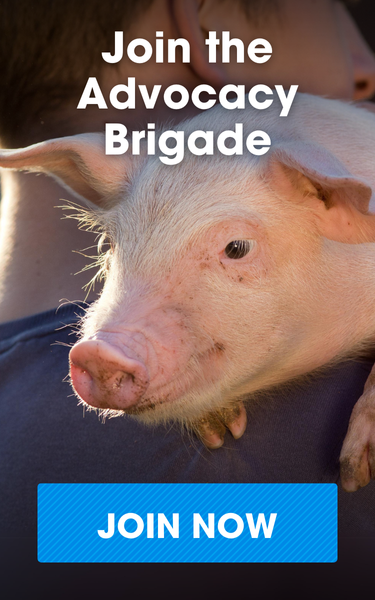
Survey Reveals Grocery Stores Are Confused About Farm Animal Welfare Labels, Too

While shopping in the meat, egg or dairy aisle, there’s a good chance you’ve seen all kinds of labels and logos implying that products came from higher-welfare farms. This flood of claims makes choosing more humane products challenging, especially when you’re trying to get your shopping done as quickly as possible. Unfortunately, pretty packaging often means little to nothing for animals. Misleading, unverified claims ultimately harm animals, farmers and consumers by taking attention away from the farmers who actually are raising animals in more humane systems. So why do supermarkets still offer products with bunk claims? Turns out, they may find labels confusing too.
Technomic, a foodservice research and consulting firm, and the ASPCA surveyed more than 300 supermarket decisionmakers at both chain and independent stores across the U.S. Here are the two major findings:
- Supermarkets are motivated to stock more humanely produced products to meet consumer demand for better treatment of farm animals, and stores are seeing strong sales of products with higher-welfare claims.
- Between 40-50% are already stocking meaningfully welfare-certified products—those bearing labels from Global Animal Partnership, Animal Welfare Approved or Certified Humane. 71% are stocking unverified products with claims like “natural” (which means nothing for animals). Of those surveyed, 30% are interested in stocking more products with the term “humanely raised.”
- However, despite believing themselves to be knowledgeable about labels, supermarkets often assign worth to misleading or meaningless labels.
- More than 70% of supermarket decisionmakers asserted a good understanding of welfare-related claims, yet 95% of supermarket decisionmakers felt that “cage-free” was a meaningful term for chicken meat products even though chickens raised for meat (broilers) are never housed in cages.
We know that consumers want higher welfare products and that supermarkets want to stock them. The Technomic/ASPCA report aims to connect those dots so that retailers can accurately meet consumer demand for more humane food. Our everyday choices in the grocery store have the power to improve the lives of millions of animals, and the ASPCA wants to help everyone make the best choices they can.
The good news is that as supermarket shoppers, we can help. To start the conversation with your local supermarket, you can:
- Send them the Technomic/ASPCA report.
- Drop off a request to source more welfare-certified and plant-based products.
- Refer to this list of higher-welfare brands, which showcases all of the different products already in the marketplace.
- Use social media to tag your supermarket and ask them to source higher-welfare products. Don’t forget to thank them when they do!
To learn more about how your food purchases can help farm animals, visit aspca.org/shopwithyourheart.

